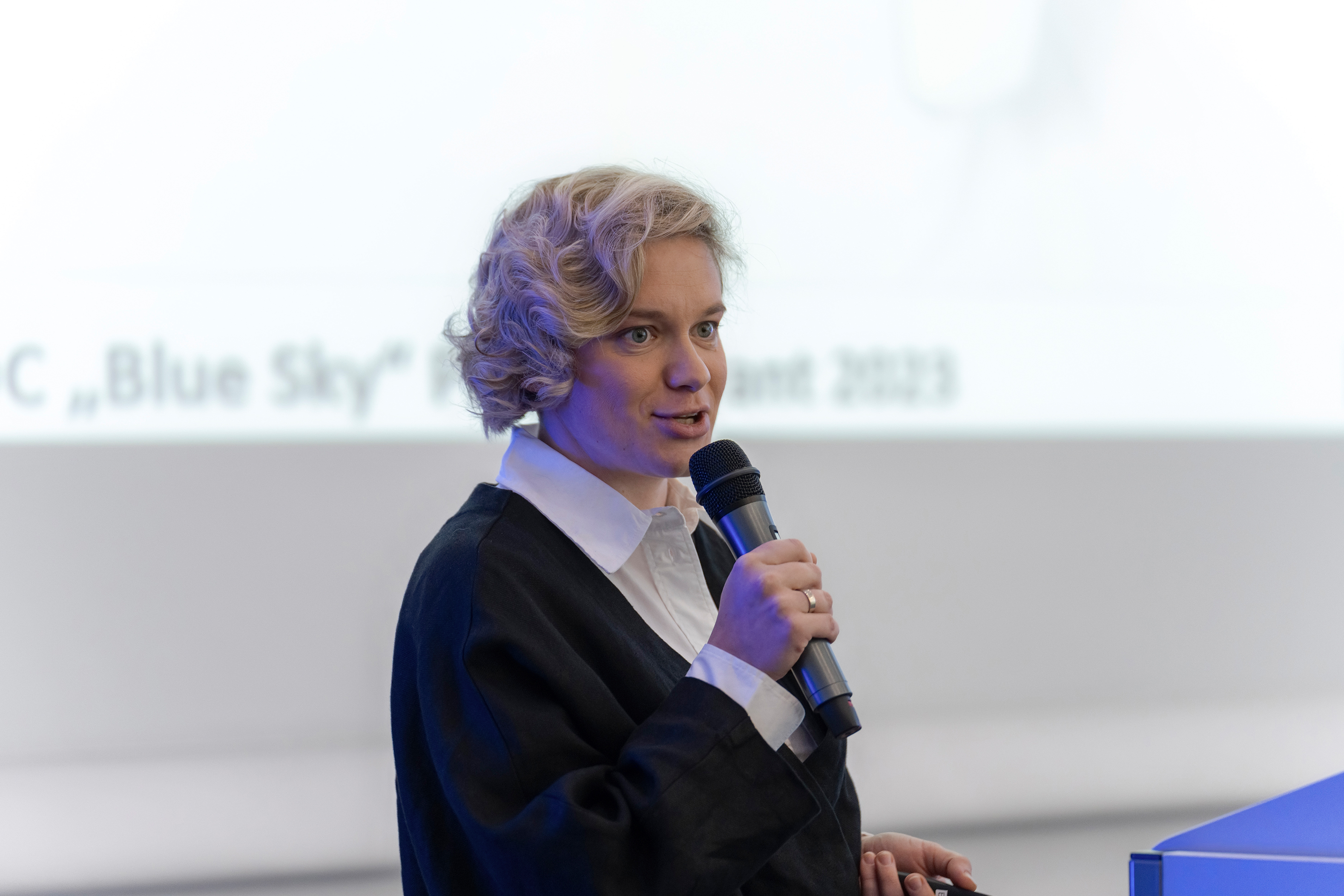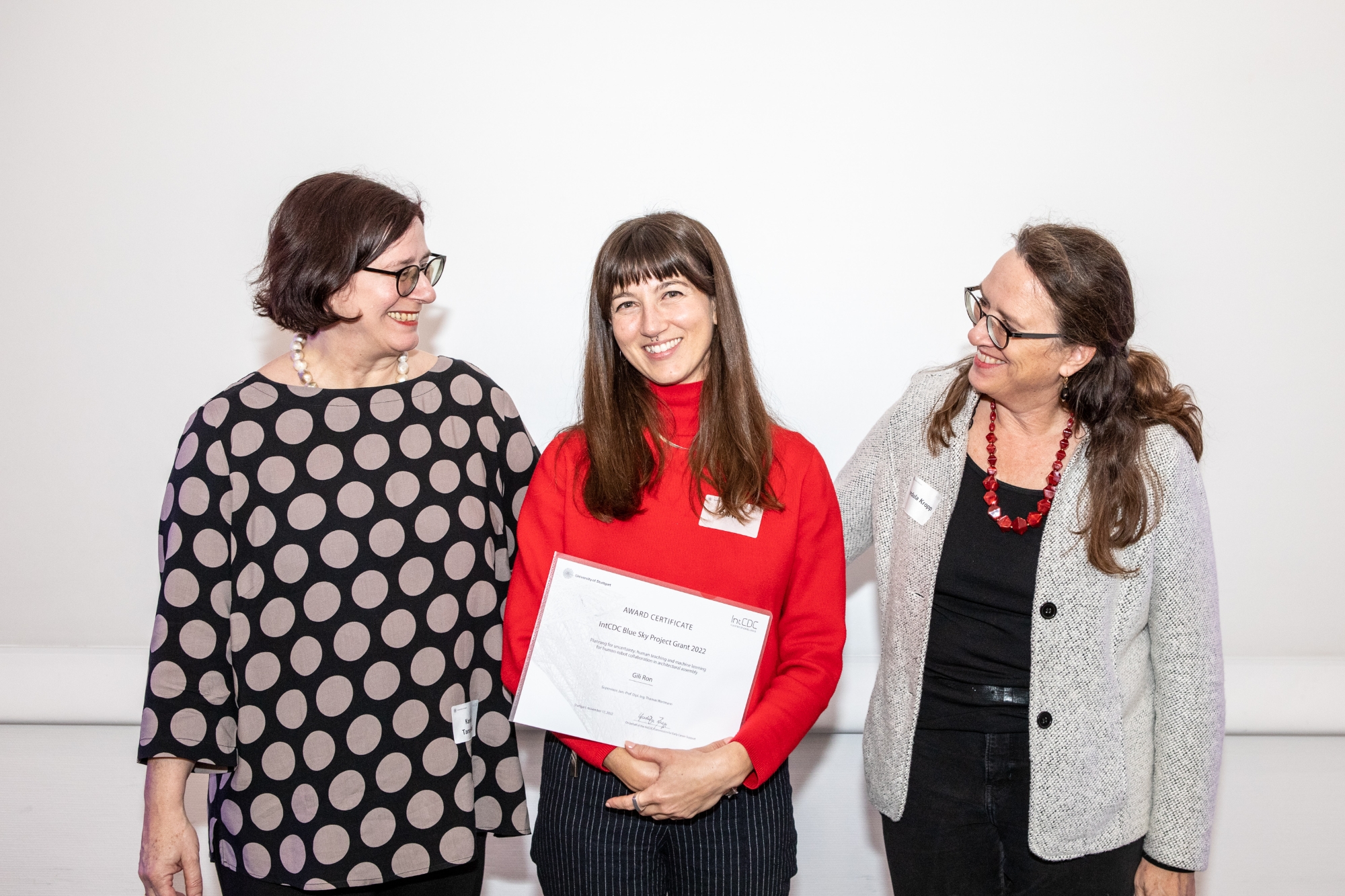
Successful early career researchers typically show high intrinsic motivation and identification with their academic work. In order to encourage and honor these attributes, the Cluster of Excellence IntCDC has established several early career grants.
IntCDC Best Publication Award | Call for applications will be published in March each year.
For more information about the award, application requirements, and selection process, please see the Confluence information page or contact Karolin Tampe-Mai.
Holistic Quality Model and Assessment: Quality as Driver for Sustainable Construction
Li Zhang, Laura Balangé, Kathrin Braun, Roberta Di Bari, Rafael Horn, Deniz Hos, Cordula Kropp, Philip Leistner and Volker Schwieger
Sustainability 2020, 12(19), 7847; https://doi.org/10.3390/su12197847
Facing rising building demands due to a fast-growing world population and significant environmental challenges at the same time, the building sector urgently requires innovation. The Cluster of Excellence Integrative Computational Design and Construction for Architecture at the University of Stuttgart tackles these challenges through a Co-Design approach for integrating computational design and engineering and robotic construction. Within this research framework, a Holistic Quality Model is developed to ensure the technical, environmental, and social quality of Co-Design processes and products. Up to now, quality models that consider and integrate all these three aspects throughout the life cycle of buildings are still missing. The article outlines the concept of holistic quality assessment based on a Holistic Quality Model for sustainable construction. A key mechanism for sustainable quality assessment in the Holistic Quality Model is the definition of control and decision points in the construction process where critical decisions are made that will affect the quality of the building throughout its entire life-cycle. Firstly, subject-specific quality concepts are defined and their interrelations are conceptualized. Subsequently, these interrelations and their effects on the overall Co-Design construction processes and products are explained using the example of the semi-robotic production of concrete slabs. Examples for control and decision points are given as well. The outline presented here serves as a basis for further advancing and concretizing the Holistic Quality Model and its applications in Co-Design for a functioning, liveable, and sustainable high-quality construction and building culture.
The team of RP18 was able to finance an inspiring workshop with the prize money.
IntCDC “BLUE SKY” PROJECT GRANT
The IntCDC “Blue Sky” Project Grant is awarded annually in recognition of a research idea that stands out in terms of its originality, its quality and the readiness to assume risk. The grant is endowed with 10.000 € enabling the grant recipient to test the feasibility of their research idea in preparation for a full dissertation or postdoctoral project.
All IntCDC early career researchers as well as advanced master’s students of the institutes involved in IntCDC are eligible to apply.
IntCDC “BLUE SKY” PROJECT GRANT | Call for application will be published in May each year
For more information about the award, application requirements, and selection process, please see the Confluence information page or contact Karolin Tampe-Mai.
Investigation on Carbon Uptake Potential of Lightweight Concrete Structures

Daria Kovaleva
The project investigates the possibility of achieving carbon neutrality of lightweight concrete structures through accelerated carbonation. The focus is on finding a combination of material, production, and structural parameters to create load-bearing structures capable of being fully carbonated. It is proposed to design and produce filigree structures with a favorable surface/volume ratio using specifically modified concrete mixes, and subject them to accelerated carbonation using captured CO2. The main risk can possibly lie in the mutually exclusive optima of the above-described parameters. This is to be mitigated by weighing the established criteria and adjusting the design parameters until the most favorable solution is obtained.
Supervisor: Prof. Dr.-Ing. M.Arch. Lucio Blandini
Planning for uncertainty: human teaching and machine learning for human-robot collaboration in architectural assembly

Gili Ron
The project investigates possibilities of agile responses to uncertainties in construction, developing novel Human-Robot Collaboration (HRC) methods, evaluated with a demonstrator. A team of a skilled human and an Artificial Intelligence (AI) trained UR10 Collaborative Robot (CoBot) assemble a wooden structure of an architectural scale, while responding to real-life scenarios: error, rework and skill shortage. To overcome the challenges of speedy and accurate assembly, deep reinforcement learning with novel reward functions (DL, RL) combined with physical feedback from the human agent are proposed. This small-scale demonstrator for HRC aims for Co-Design, reduced fabrication errors and material waste and foster human-robot kinship.
Supervisor: Jun.-Prof. Dipl.-Ing. Thomas Wortmann
Automated preforming of natural-fibre textiles for biocomposite profiles and lightweight structures
Piotr Baszynski
The project investigates possibilities of erecting structures from free-formed biocomposite profiles, fabricated in a fully additive process based on Automated Preforming (AP) of natural fibre textiles. AP allows for noticeable time and energy savings, at the same time offering profile customization possibilities such curvature or transition of the profile section. Consequently, free-formed biocomposite profiles can be fabricated in a fully additive process, which makes them a potential alternative to timber elements in structures that use free-formed timber beams. As the technology has not been used in construction industry yet, developing a proposal of a structural system based on such profiles and fabricating profiles samples for a small demonstrator are the key interests of this proposal.
Supervisor: Jun.-Prof. Dr.-Ing. M.Eng. Arch. Hanaa Dahy
IntCDC MASTER’S THESIS AWARDS
(up to 2022 Master’s Thesis Grants)
The IntCDC Master’s Thesis Awards are part of a bundle of measures designed to promote early career researchers within the Cluster of Excellence IntCDC. The Awards encourage excellent master’s students to realize a first step towards a prospective academic career by recognizing excellent master’s thesis research.
We award up to two Master’s Thesis Awards per year. Each award is endowed with 500€ price money, to be used at the winner’s discretion.
All master’s students, who completed their master’s thesis at one of the institutes participating in IntCDC since the last call was published, are eligible for the award. Candidates have to be nominated by their thesis advisors; self-nomination is not possible.
IntCDC Master’s Thesis Award 2023 | Call for application will be published in July each year
For more information about the award, application requirements, and selection process, please see the Confluence information page or contact Karolin Tampe-Mai.

Karolin Tampe-Mai
Dipl.-Ing.Graduate School & Early Career

